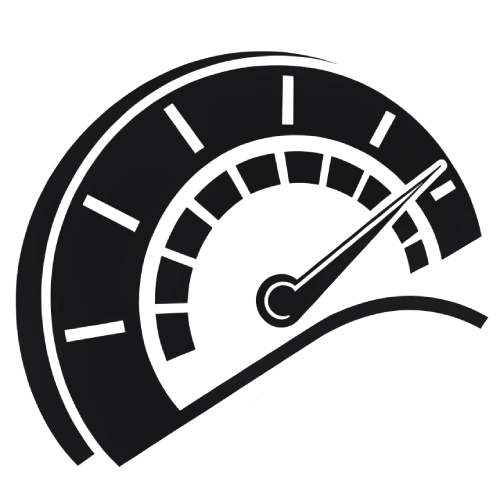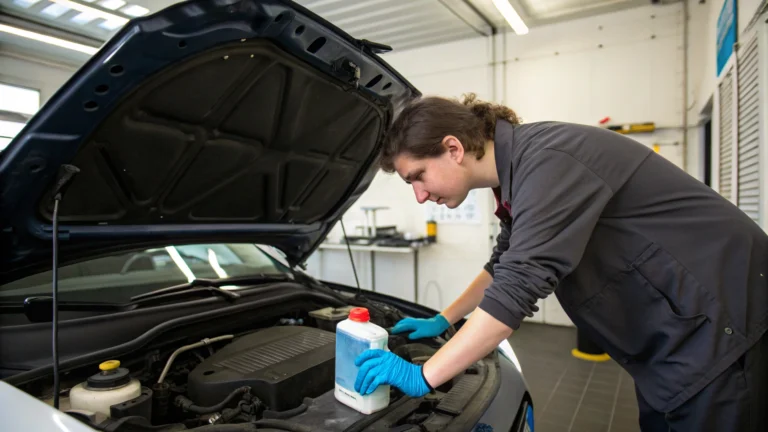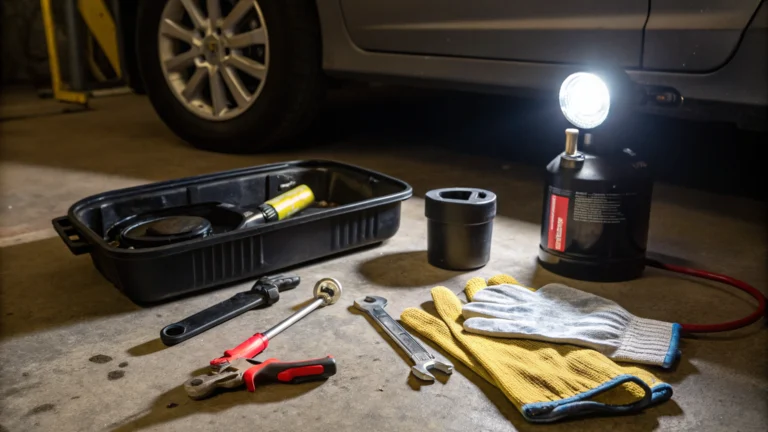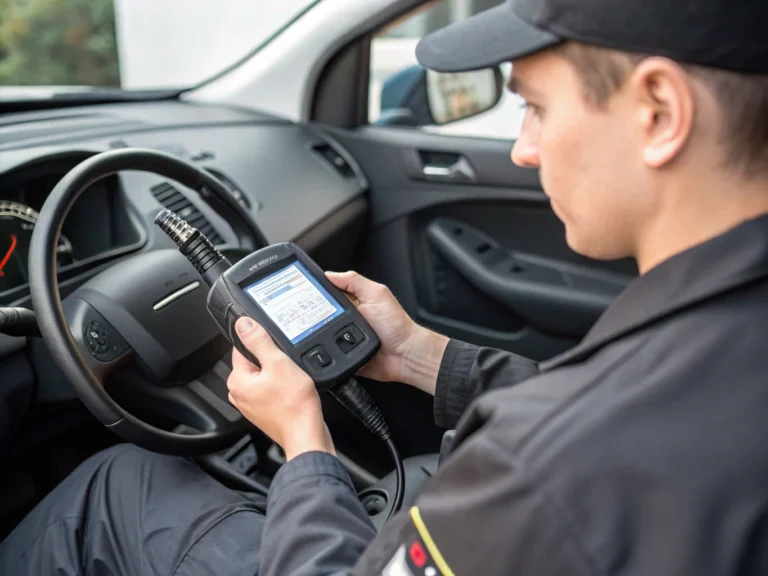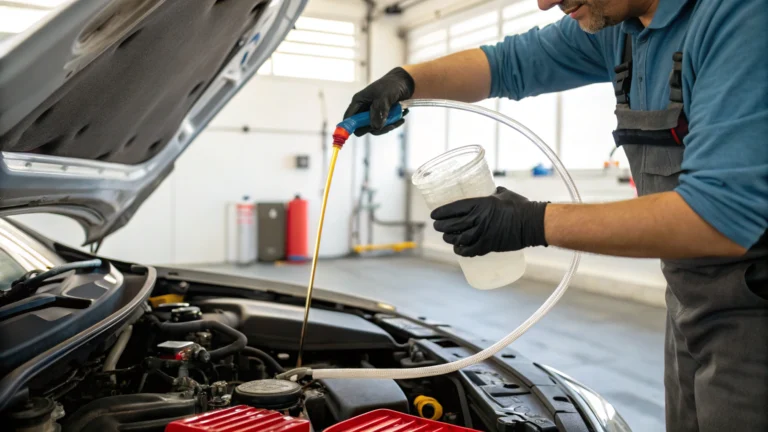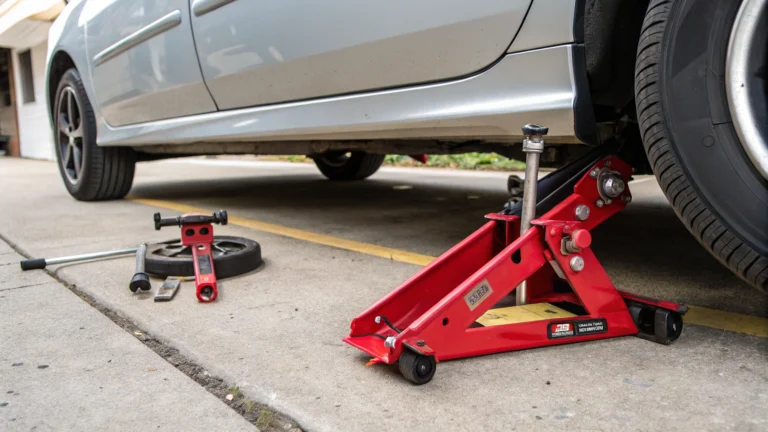Car Shaking Troubles? Fix Common Causes Quickly
Table of Contents
If you’ve ever asked why is my car shaking, you’re not alone. Car shaking is a common symptom many drivers face, often signaling an underlying issue that needs addressing. Whether it’s mild vibration while idle or severe shaking at high speeds, understanding the cause is essential for maintaining your vehicle’s safety and performance.
In this comprehensive guide, we’ll delve into the different aspects of car shaking, including its causes and fixes. By identifying specific issues, you can effectively resolve these problems and get back to a smoother, more comfortable driving experience.
Why Is My Car Shaking?
When your car starts to shake, it’s trying to tell you something’s wrong. The key to diagnosis is noting when the shaking happens – at idle, during acceleration, at high speeds, or when braking. Different patterns point to different problems.
Engine Vibration Issues
Engine-related shaking is particularly noticeable when your car is idle or accelerating. Common causes include:
Misfiring Engine: When your engine isn’t firing correctly on all cylinders, it creates an imbalance that causes vibration. This might happen due to worn spark plugs, damaged ignition coils, or clogged fuel injectors. You’ll often notice rough idling, hesitation during acceleration, and possibly a check engine light.
Broken Motor Mounts: Motor mounts connect your engine to the vehicle’s frame and absorb engine vibrations. When they wear out or break, they transfer engine movement directly to the car’s body, resulting in noticeable shaking, especially at idle.
Dirty Air Filters: A clogged air filter restricts airflow to the engine, creating an improper air-fuel mixture that can cause the engine to run roughly and shake. Regular maintenance can prevent this simple but problematic issue.
Tire and Wheel Problems
Tire issues are among the most common causes of car shaking, particularly at certain speeds:
Unbalanced Tires: When weight is unevenly distributed around your tires, they create vibrations when spinning. This typically becomes noticeable at highway speeds (around 55-65 mph) and may worsen as speed increases.
Tire Damage: Bulges, flat spots, or separated treads create uneven surfaces that cause shaking. Similarly, bent wheels from hitting potholes can create persistent vibration problems.
Wheel Alignment Issues: Improper alignment causes uneven tire wear and can result in steering wheel vibrations, particularly when driving at moderate to high speeds.
Suspension System Troubles
Your car’s suspension system keeps your ride smooth over uneven surfaces. Problems here can lead to concerning shaking:
Worn Shocks or Struts: These components dampen road impact. When they fail, your car may bounce excessively after bumps and shake consistently on rough roads.
Ball Joint Issues: Ball joints connect the control arms to the steering knuckles. When they wear out, they create looseness in the suspension that translates to vibrations and clunking noises.
Control Arm Damage: Bent or damaged control arms affect wheel alignment and suspension geometry, leading to vibration and handling issues.
Common Fixes for Car Shaking
Now that we’ve identified potential causes, let’s look at practical solutions to address car shaking problems:
Fixing Engine-Related Shaking
Tune-Up Services: Regular maintenance like replacing spark plugs, wires, and filters can resolve many engine vibration issues. Most vehicles benefit from a tune-up every 30,000 miles or according to your manufacturer’s recommendations.
Replacement of Motor Mounts: If engine vibrations are transferring to the vehicle body, have a mechanic inspect and replace damaged motor mounts. This relatively straightforward repair can dramatically reduce shaking at idle.
Fuel System Cleaning: Carbon deposits in fuel injectors or intake valves can cause rough running. A professional fuel system cleaning service can resolve these issues and restore smooth operation.
Solutions for Tire and Wheel Issues
Tire Balancing: This affordable service redistributes weight around each tire and wheel assembly. Most tire shops charge $10-20 per tire for balancing, making it a cost-effective fix for high-speed vibrations.
Tire Rotation and Replacement: Regular rotation extends tire life and prevents uneven wear. If tires are damaged or worn beyond safe limits, replacement is the only solution. Consider replacing tires in pairs or sets for optimal performance.
Wheel Alignment: A proper alignment ensures all wheels are positioned correctly relative to each other and the road surface. This service typically costs $75-150 but saves money long-term by preventing uneven tire wear and improving fuel efficiency.
Repairing Suspension Problems
Replace Worn Shocks or Struts: These components typically last 50,000-100,000 miles depending on driving conditions. Replacement improves not just comfort but also handling and braking performance.
Ball Joint and Control Arm Repairs: These critical suspension components should be inspected during routine maintenance. Replacement costs vary widely between vehicles but is essential for safety when wear is detected.
Bushing Replacement: Rubber bushings throughout the suspension system deteriorate over time. Replacing worn bushings can eliminate many vibration issues and restore proper suspension geometry.
Is It Safe to Ignore Car Shaking?
The short answer is no – vibrations and shaking should be addressed promptly. Here’s why:
When Shaking Indicates Serious Issues
Car shaking isn’t just about comfort; it often signals problems that can lead to:
Reduced Safety: Vibrations from worn suspension components or misaligned wheels can compromise your ability to control the vehicle, especially in emergency situations.
Cascading Damage: Small issues causing vibration often lead to more significant problems. For example, a wheel alignment issue can cause uneven tire wear, which then creates more severe vibrations and potentially damages suspension components.
Higher Repair Costs: Addressing the root cause of shaking early typically costs less than waiting until multiple components are damaged. What might start as a simple tire balance could become a major suspension repair if ignored.
When Mild Shaking Can Be Temporarily Tolerated
While no vibration should be permanently ignored, some situations are less urgent:
Minor Idle Vibration: Slight vibration at idle, particularly in older vehicles or certain engine designs, may be normal. However, any increase in this vibration warrants investigation.
Brief Shaking After Service: Sometimes after tire rotation or other work, a brief period of settling may occur. If vibrations don’t disappear after 50-100 miles, return to your service provider.
The bottom line: car shaking almost always indicates a problem that will worsen over time. Regular maintenance and promptly addressing any unusual vibrations will keep your vehicle running smoothly, safely, and economically. When in doubt, consult with a qualified mechanic who can properly diagnose and resolve your car’s shaking issues before they develop into more serious problems.
As an Amazon Associate we earn from qualifying purchases.
Shop Related Products:
- Find Wheel balancing weights on Amazon
- Find tire pressure gauge on Amazon
- Find lug wrench on Amazon
- Find torque wrench on Amazon
- Find wheel alignment tool on Amazon
Addressing your car shaking problems is crucial for both short-term comfort and long-term safety. By understanding the different causes of vibrations, such as unbalanced tires or suspension issues, you can take informed steps to fix them. Doing so ensures that your car remains in good condition and helps avoid costly repairs down the road.
Ultimately, whether it’s a minor issue like an air filter replacement or a more significant repair, timely maintenance is key. Consider consulting with a professional mechanic who can give you a comprehensive diagnosis and plan of action tailored to your vehicle’s needs, ensuring any car shaking is dealt with efficiently.
Frequently Asked Questions
Why is my car shaking while driving?
Common causes include unbalanced tires, misaligned wheels, or engine issues. Tire problems typically cause shaking at higher speeds (55-65 mph), while engine-related vibrations are more noticeable during idle or acceleration. Suspension issues can cause shaking on rough roads. The timing and conditions of the shaking provide important diagnostic clues.
Can engine problems cause shaking?
Yes, misfiring, bad spark plugs, or faulty motor mounts can lead to vibrations. Misfiring engines create an imbalance that causes shaking, particularly at idle or during acceleration. Worn or broken motor mounts fail to properly dampen engine vibrations, transferring them to the vehicle body. Fuel system issues like clogged injectors can also create rough running conditions that manifest as shaking.
Is it safe to drive a shaking car?
Not always; shaking can indicate serious issues and should be inspected. Vibrations from suspension problems or wheel issues can compromise vehicle control, especially in emergency situations. Even minor shaking often signals developing problems that will worsen over time and potentially lead to more expensive repairs. For safety and to prevent cascading damage, have any unusual vibrations professionally diagnosed as soon as possible.
